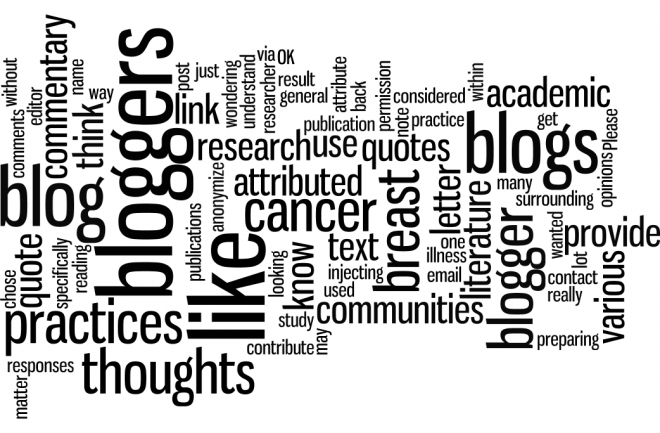As many of you know, I’m both a blogger and an academic. I’m looking at doing my research on breast cancer blogs. As a result, I’m reading a lot of academic literature surrounding illness blogs in general, and breast cancer blogs specifically. There is a practice within some research communities to anonymize blog text – that is, to quote it but not attribute it to the blogger or provide a link to the blog. In other communities blogs are considered publications like any other publication and the text is attributed as such.
I’m wondering what other breast cancer bloggers think of the various practices? If a researcher wanted to use your blog for a study would you like to know about it? Would you like to contribute in some way? Would you like any quotes to link back to your blog, or would you be OK with your quotes being attributed as “one blogger says” without your name?
I’m preparing a letter to the editor / commentary on the various practices in the literature, and I would really like to understand what other bloggers think of the practices, so that I am not injecting just my opinions on the matter.
Please note that any responses to the post in the comments may be used for the letter / commentary, and that if I chose to use your quote I will contact you via the email you provide to get your permission.


Leave a Reply